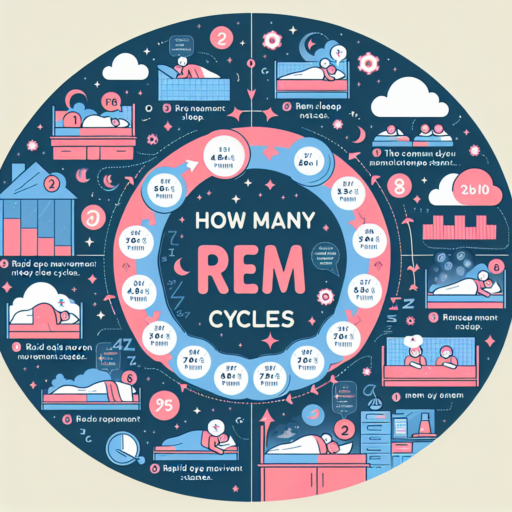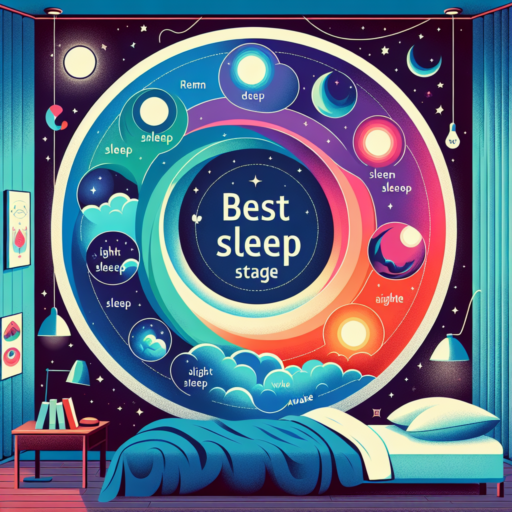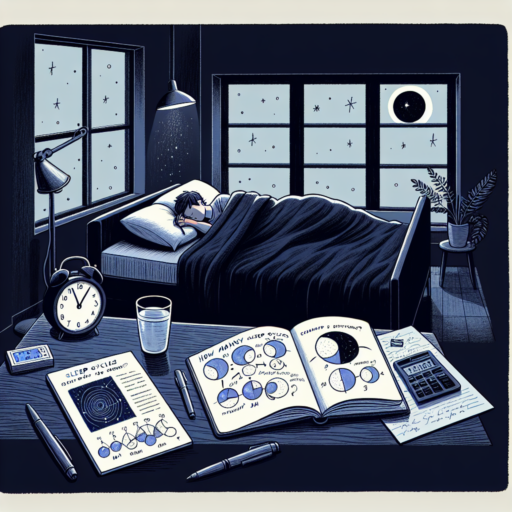Is a REM cycle 4 hours?
Many people wonder about the duration of a REM (Rapid Eye Movement) cycle, often misconceiving it to be as long as 4 hours. REM sleep, characterized by rapid movement of the eyes, is a critical phase in the sleep cycle, noted for its role in dreaming and memory consolidation. It’s crucial to understand that the structure of sleep cycles, including REM sleep, is more complex and does not extend for such a long duration continuously.
The Duration of a REM Cycle
Typically, a full sleep cycle, encompassing all stages from light sleep to deep (non-REM) sleep and then REM sleep, lasts about 90 minutes in adults. The first REM period of the night might be quite short, lasting only a few minutes. However, as the night progresses, REM sleep durations increase, with later REM stages potentially lasting up to an hour. This progression means that, although REM sleep is an integral part of the sleep cycle, no single REM period extends for 4 hours at a time.
Factors Influencing REM Sleep
Certain factors can influence the duration and quality of REM sleep. These include age, sleep schedule, and individual health conditions. Newborns, for example, spend much more time in REM sleep, which constitutes about half of their total sleep time. Adults, on the other hand, typically see about 20-25% of their sleep in REM phases. Disruptions to sleep, such as those caused by sleep disorders, stress, or alcohol consumption, can further affect the length and quality of REM sleep.
How long does it take to get 1 REM cycle?
Understanding the duration of a single REM (Rapid Eye Movement) cycle is crucial for deciphering the complexities of sleep patterns. Typically, a REM cycle does not immediately commence when you fall asleep. Initially, the body transitions through the various non-REM sleep stages, which cumulatively span approximately 70 to 90 minutes. Following this preliminary phase, the first REM cycle begins, marking a significant stage where vivid dreams are most likely to occur.
On average, the initial REM cycle lasts for about 10 to 25 minutes. It’s important to note that as the night progresses, the length of each REM period can increase, with later cycles extending up to an hour. The duration of REM cycles, as well as the overall sleep architecture, can vary significantly among different individuals, influenced by factors such as age, sleep quality, and health conditions.
In the context of a full night’s sleep, comprising multiple cycles of non-REM and REM stages, an individual typically experiences around 4 to 6 REM cycles. The comprehensive architecture of sleep is designed to optimize restorative functions and cognitive abilities, with REM sleep playing a pivotal role in memory consolidation and emotional regulation. Thus, understanding the timing and duration of REM cycles is integral to appreciating the holistic nature of sleep health.
Which is better, REM or deep sleep?
Understanding the complexities of sleep stages is pivotal in addressing the commonly asked question: Which is better, REM or deep sleep? Both stages are integral to a healthy sleep cycle, contributing uniquely to our overall well-being.
REM sleep, or Rapid Eye Movement sleep, is noteworthy for its association with dreaming. During REM, brain activity surges, closely mimicking that of being awake. This phase is crucial for cognitive functions such as memory consolidation, learning, and emotional processing. It’s during REM that the mind sorts and stores information, making this stage indispensable for mental health.
In contrast, deep sleep stands out for its restorative properties. This stage of sleep is characterized by slow brain waves, known as delta waves, and it plays a critical role in physical health. Deep sleep aids in the repair of cells, replenishment of energy stores, and fortification of the immune system. It’s in this phase that growth hormone is released, underscoring deep sleep’s importance for physical development and recovery.
While it’s tempting to weigh REM against deep sleep in a bid to declare a superior phase, such a comparison overlooks the symbiotic relationship between the two. Each plays a vital role in the sleep cycle, catering to different aspects of health and well-being.
No se han encontrado productos.
Is 3 hours of REM sleep too much?
The question of whether 3 hours of REM sleep is too much has intrigued sleep researchers and individuals keen on optimizing their rest. REM, or Rapid Eye Movement sleep, plays a crucial role in our sleep cycles, associated with the deepest dreams and playing a pivotal role in cognitive functions such as memory consolidation and mood regulation. Understanding the ideal amount of REM sleep can be beneficial for enhancing overall sleep quality and, by extension, our daytime well-being.
Typically, adults spend about 20-25% of their sleep in the REM phase, which equates to around 90-120 minutes for a standard 7- to 9-hour sleep period. Thus, achieving 3 hours of REM sleep may seem excessive compared to the average, potentially indicating an altered sleep cycle or an attempt to catch up on REM sleep due to previous deprivation. However, it’s important to note the variability in individual sleep needs and patterns, suggesting that a one-size-fits-all recommendation does not apply to REM sleep durations.
Excessive REM sleep can be a sign of various sleep disorders, including narcolepsy, which is characterized by an overwhelming daytime drowsiness and sudden sleep attacks. Moreover, research suggests that too much REM sleep, especially in disproportionate amounts to other sleep stages, might be linked to depression, anxiety, and other mood disorders. Identifying the root cause of increased REM sleep, through professional sleep studies or consultations, can provide valuable insights into underlying health concerns and guide appropriate interventions.




